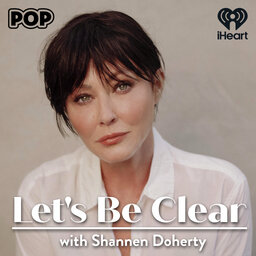Let's Make Better Choices...with Samantha Harris
Former 'Dancing with the Stars' host and TV journalist Samantha Harris was thankful for beating breast cancer, until it came back.Find out how she was diagnosed after a mammogram gave her the 'all clear' and how she faced this diagnosis the second time around.Using her investigative skills, Samantha researched how much our products and foods play a role in our future. Listen now to find out how you can make better choices for your body without feeling deprived.
In 1 playlist(s)
Let's Be Clear with Shannen Doherty
Let’s Be Clear… a new podcast from Shannen Doherty. The actress will open up like never before in…Social links
Follow podcast
Recent clips

Let's Get Real with Selma Blair and Amanda Kloots
41:24

Let's Find our Second Wind...with Marion Jones
39:09

Let's Find The Prescription for Joy...with Dr. Tiffany Moon
33:00
 Let's Be Clear with Shannen Doherty
Let's Be Clear with Shannen Doherty